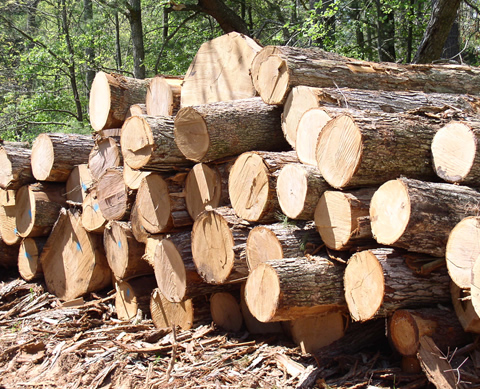Illegal timber logging threatening Ghana’s water sources
 Illegal timber logging has been identified as a major threat to Ghana’s forest which also serve as the sources of most of the river bodies that is used by the people.
Illegal timber logging has been identified as a major threat to Ghana’s forest which also serve as the sources of most of the river bodies that is used by the people.
Most rivers including the Densu which hosts the Weija dam that produces water for most people in the Greater Accra Region have its source from the Atewa forest located in the Eastern Region.
It is estimated that about 80 per cent of all wood sold in the country are acquired illegally from Ghana’s forest and the government is the highest consumer of such illegal wood also known as bush cut, as a result of various infrastructural projects that it engages in.
During a two-day media training workshop on the Public Procurement Policy (PPP) on Timber and Timber Products in Ghana, organized by the Nature and Development Foundation (NDF), an NGO with support from the Food and Agriculture Organisation (FAO), media personnel learnt that most of Ghana’s forest cover was critically threatened amidst indiscriminate timber logging being done by chainsaw operators without regard to the laws.
Meanwhile the status of the Public Procurement Policy on Timber and Timber Products which the country started developing in 2012 to help guide how timber products could be sourced and used, is in limbo as its now being shelved.
Ms Matilda Appiah, Project Officer of NDF, said in an expression of commitment to show leadership in addressing illegal logging and trade in timber and timber products, and to support the development of sustainable forest management, the Government through the Ministry of Lands and Natural Resources (MLNR) and the Timber Industry Development Division (TIDD) of the Forestry Commission started the development of the PPP on Timber and Timber Products for the domestic market.
She said the aim of the PPP was to use the purchasing power of government procurement to signal the market in favour of legally and sustainably produced timber and timber products.
She said to support the Government’s effort at sanitizing the forestry and timber sector, the NDF with financial assistance from the FAO, collaborated with the MLNR and the TIDD to develop implementation guidelines for the policy.
She said the NDF also helped trained regional, metropolitan, municipal and district level procurement officers from the Ashanti and Greater Accra regions on the guidelines and the policy to ensure effective implementation.
“However, after these actions, much has not been done in getting the policy passed,” Ms Appiah noted.
Mr Glen Asomaning, Operations Director of NDF, said since the beginning of the century, Ghana’s forest cover which was 8.2 million hectares had reduced to 1.6 million hectares in present times due to many illegal activities being perpetuated through deforestation, high demand for arable land, as well as weak enforcement of laws.
He said the state of the world forest was not too good and that of Ghana had become so critical as the country loses 55,000 hectares of forest annually and that if sustainable forestry management was not adopted it would be very detrimental to the survival of current and succeeding generations.
Mr Mustapha Seidu, Director of NDF urged Ghanaians to stop patronizing illegal timber from the market usually brought in by chainsaw operators which usually look shorter in length than the legally cut wood and also have rough edges most of the time.
He said most of the illegal wood usually does not last longer when they are used for building and other construction projects because the chainsaw operators always cut any wood in the forest without recourse to any regulations, making people to incur more cost”.
“People should ask for sawmill wood, which are highly susceptible to be from legal timber,” he advised.
The purpose of the media training was to give participants an exposure to the public procurement policy on timber and timber products, and to build capacity of journalists to follow up on appropriate authorities to ensure that Ghana’s forest cover was properly maintained to save humanity.
Source: GNA
